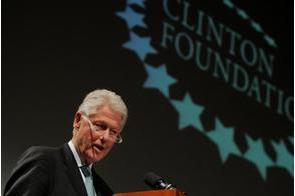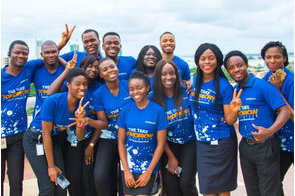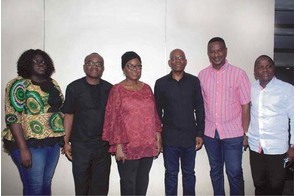Opponents of World Bank-funded projects harassed, threatened

Summary
In Cambodia, India, Uganda and elsewhere, HRW reports that people have been harassed and arrested on trumped-up charges.
In a 144-page report, the international human rights advocacy group, Human Rights Watch (HRW), has provided details on how the World Bank Group, including its private sector lending arm, the International Finance Corporation (IFC), has failed to take adequate measures to protect the rights of individuals to express concerns or criticism about projects funded by the Group in their communities.
According to the report, entitled “At Your Own Risk: Reprisals against Critics of World Bank Group Projects,” outspoken community members who are at risk of being displaced or harmed by projects financed by the World Bank have frequently been intimidated and spuriously prosecuted by governments and powerful corporations.
For instance, in Cambodia, India, Uganda, Uzbekistan, and elsewhere, HRW reports that people have been harassed and arrested on trumped-up criminal charges for taking a position against World Bank-financed projects. And where such reprisals have occurred, the victims are left to their fate.
Despite its espoused principle of public participation and accountability in its development activities, the World Bank maintains an uncomfortable degree of silence or prefers “quite diplomacy.” Jessica Evans, senior researcher and advocate working on international financial institutions at HRW, says such repeated failure to provide prompt interventional support for people who confront intimidation or harassment make “a mockery of these (World Bank) principles.”
In northern India, a 30-year-old woman described how employees of the company in charge of constructing a hydropower dam publicly ridiculed community members who were protesting against a World Bank-funded project. The private company staff called the protesters “prostitutes,” and warned them of “severe” consequences if they continued their protest. In Cambodia, an official allegedly told a community member from Khanat Tom village in Ta Lao community, “Don’t be too strong in your advocacy, otherwise you may end up in prison.”
The brutal campaign embarked upon by a growing number of governments to shut down dissident groups can prevent people from participating in a constructive decision-making process when things go wrong with government development initiatives. The WBG for the most part, continues to play to the gallery.
The Inspection Panel -- the independent complaint mechanism of the World Bank -- and the Compliance Advisor Ombudsman – a similar mechanism of the IFC for addressing public concerns over its projects -- have acknowledged the risk of retaliation against critics. However, neither has established a systematic framework for addressing them. Since receiving the Human Rights Watch findings, the Inspection Panel has announced it is working on a guidance note on how to respond to reports of reprisals. On its part, the CAO has promised to consider the Human Rights Watch recommendations.
“The Inspection Panel and Compliance Advisor Ombudsman’s eagerness to tackle the risk of reprisals and improve their systems is a great sign,” says Evans. “World Bank management should follow the lead of its complaint mechanisms and take the issue of reprisals seriously.”
World Bank Group President, Jim Yong Kim, and the Group’s governing board should set the tone for the organization and send a clear message to all staff that they are expected to work diligently to prevent and respond to threats, intimidation, and all other reprisals linked to the Group’s activities. The Group’s member countries should also ensure that their board members reiterate their human rights commitments and that these commitments guide decisions and communications with the Group’s management regarding reprisals.
“President Kim should take a leadership role in creating an environment in which people can freely share their views, particularly critical ones, regarding the bank’s investments, without fear of reprisals,” says the senior researcher at HRW.
Related
-
Clinton Foundation embroiled in accusations of unwholesome practices
The foundation is accused of using poverty in African countries as a public-relations tool.
-
Access Bank driving its Sustainability agenda with employee volunteering
Under the EV scheme, over 7,000 of the bank's employees have used their skills and resources to identify, select and ...
-
Access Bank holds sustainability events
Access Bank hosted the Sustainability Awareness Week (SAW) on November 5-9. Like the training session organized earlier, ...
Sustainable Development Section Sponsor
Most Popular
- India’s sustainable eating habits offer hope for climate change mitigation
- Unpaid care work prevents 708m women from participating in labour market
- COP29: Multilateral development banks to boost climate finance
- Access Holdings and African art renaissance
- Africa Finance Corporation facilitates $200mn financing for BUA Group









